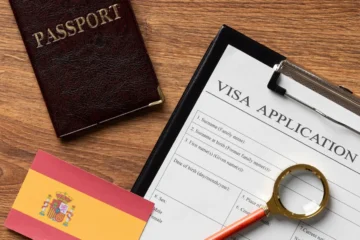If you were eyeing Germany’s fast-track citizenship as your express ticket to a new passport, well, that train has officially left the station. Introduced to reward highly integrated immigrants, the fast-track system allowed people to snag German citizenship in just three years. It was a game-changer for those who mastered the language, embraced the culture, and generally went full Deutsch.
But in 2025, the new coalition government decided to slam on the brakes. The goal? To align naturalization with more traditional expectations around integration and residency. As of now, if you dream of carrying that sleek German passport, you’ll need a bit more patience and a lot more paperwork.
Key Takeaways
What Are the New Citizenship Requirements in 2025?
So what does the slower route look like? First off, the timeline is back to the standard five years of legal residence — no shortcuts. Even if you’re fluent in German slang and have an impressive collection of Oktoberfest memorabilia, the express route is no longer an option.
Language requirements also hold firm: B1-level German is the bare minimum. In simple terms, you need to handle day-to-day conversations, job interviews, and your neighbor’s unsolicited advice — all in German. Plus, proof of “social integration” is non-negotiable. Think stable employment, active community participation, and maybe joining a local football club for extra credit.
Is Dual Citizenship Still Allowed in Germany?
Here’s a piece of good news amid the slowdown: Germany’s 2024 reform that legalized dual citizenship is here to stay. You no longer have to choose between your original nationality and a shiny new German one.
The government has made it clear that it’s standing firm on this policy. Even concerns about dual nationals and potential extremist links weren’t enough to push lawmakers into introducing citizenship revocation laws. Bottom line: Germany is opening its arms — but it still wants a little more commitment before handing you the passport.
Also Read: Which Countries Are Offering Citizenship by Investment in 2025?
Who Will Be Most Affected by These Changes?
Naturally, not everyone feels these changes equally. Highly skilled workers, students, and expats who had hoped for a fast-track ticket might be the ones sighing the loudest. Those who were counting down the months to apply will now need to buckle up for a longer ride.
On the flip side, long-term residents — especially those already planning for the regular five-year route — won’t notice much difference. And for new arrivals in 2025 and beyond, the five-year expectation will simply be the new normal. It’s all about adjusting mindsets (and maybe setting more realistic countdown timers).
Can You Still Become a German Citizen Smoothly?
Absolutely — as long as you know what you’re signing up for. The key to navigating the new system smoothly is preparation. Keep meticulous records of your time in Germany. Make sure your language skills meet the B1 benchmark (or higher, if you want to impress). Engage with your local community. Pay those taxes. Stay squeaky clean with the law. Be the citizen Germany would be proud to claim.
And if you’re serious about naturalization, starting early helps. Enroll in integration courses, volunteer locally, and get cozy with German bureaucracy — it may be your new best friend for the next five years.
Final Thoughts: Slower Path, but Still a Promising Future
Sure, the fast-track program had its appeal — who wouldn’t love a shortcut? But Germany’s 2025 reforms show a shift toward a steadier, more deliberate approach to citizenship. While the journey now takes longer, the destination remains just as rewarding. With dual citizenship still on the table and a more inclusive attitude toward immigrants, the dream of calling Germany home is very much alive.
So, take a deep breath, pace yourself, and maybe start practicing how to say Einbürgerungsurkunde without breaking a sweat. Your German future is still well within reach — it’s just going to take a little longer to get there.





